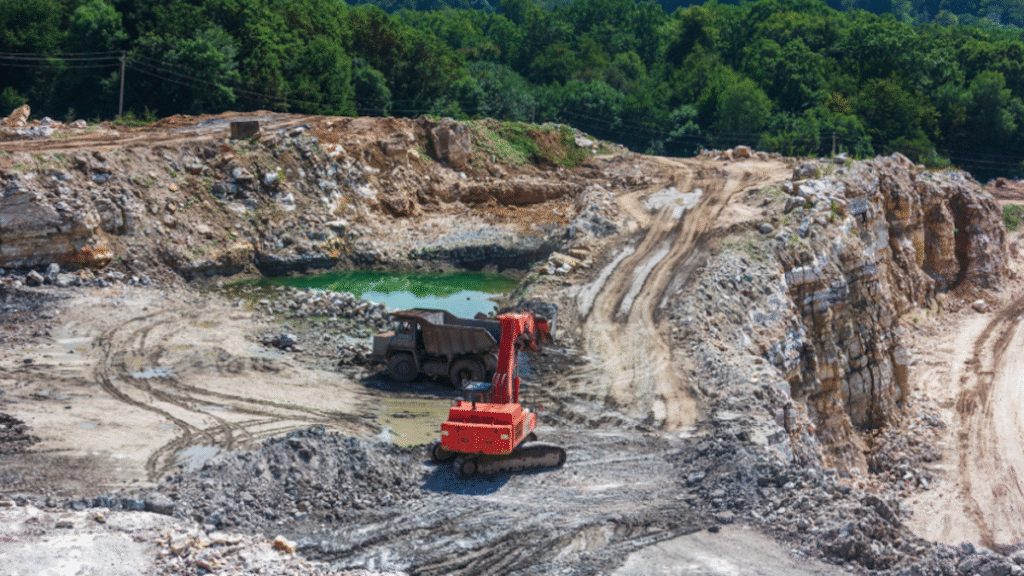Global lithium prices rose significantly after China’s Contemporary Amperex Technology Co. Limited (CATL), the world’s largest electric vehicle (EV) battery manufacturer, halted its mine operations in Yichun, Jiangxi province.
On Monday, CATL announced that it has temporarily shut down its Jianxiawo lithium mines in Yichun, known widely as “Asia’s lithium capital.” The suspension could last for at least three months, but may extend longer depending on the outcome of regulatory review processes.
The announcement followed the company’s failure to renew an expired mining permit on August 9. CATL said it is addressing compliance requirements with government agencies.
Lithium prices have been volatile in 2025. Due to reports about the potential shutdown of the Yichun mines, the futures price of lithium carbonate increased from 58,400 yuan (US$8,124) per ton on June 23 to 80,500 yuan per ton on July 25.
However, lithium prices fell again after the Guangzhou Futures Exchange set a cap on the number of daily transactions per trader on July 25. They decreased to 68,000 yuan per ton on August 5. Then speculators entered the market again.
Lithium prices rebounded by 8% to 81,000 yuan per ton on Monday’s trading day, as CATL formally announced its decision to halt mine operations in Yichun. Still, the mineral’s prices are 86% off from their peak of 590,000 yuan per ton in November 2022.
Shares of Chinese lithium miners rose on Monday on the surge in lithium prices. Tianqi Lithium Corp rose 18.2% to HK$48.48 (US$6.18), while Ganfeng Lithium gained 20.9% to HK$34.
Some Chinese commentators suggested that CATL’s failure to renew its mining licenses in Yichun, followed by the rebound in lithium carbonate prices, was a result of the central government’s new directive to reduce market competition and boost corporate profits.
“The sharp increase in price of lithium carbonate, and also that of coking coal, was caused by the storm of Beijing’s ‘anti-price war’ in July,” Sammy Kip, a Hubei-based columnist, says in an article published on August 9. “However, lithium carbonate and coking coal prices corrected significantly between July 28 and August 5.”
Kip says that many individual commodity speculators were still counting their losses on August 6 when the price began to surge again. He says that commodity traders are now split into two camps. One believes that the government’s “anti-price war” policy will continue to support the lithium price, while the other remains bearish.
“Those who bet on an increasing lithium price should stay vigilant as government policy can change at any time,” he says.
‘Anti-involution’
The National Statistics Bureau (NBS) reported on July 27 that industrial profits of Chinese firms fell by 1.8% year-on-year to 3.44 trillion yuan in the first half of this year.
Ganfeng Lithium stated in a stock exchange filing on July 14 that its net loss would be between 300 million and 550 million yuan for the six months ended June 30, due to declining prices for lithium salts and battery products. Lithium carbonate (Li2CO3) is a kind of lithium salt.
Tianqi Lithium Corp said it might record a net profit of up to 155 million yuan in the first half of 2025, compared with a net loss of 5.2 billion yuan in the same period of last year. It stated that it benefited from a shorter price cycle for its unit’s lithium concentrates. Still, it stressed that a decline in lithium product prices may adversely affect its operating results.
The Politburo of the Chinese Communist Party (CCP) Central Committee, in a meeting on July 30, decided to deepen the construction of a unified national market, promote the continuous optimization of market competition order and govern disorderly competition among enterprises by laws and regulations. Chinese media referred to this as an “anti-involution” campaign.
Li Pan, an analyst at Shanghai Ganglian E-commerce Holdings (also known as Mysteel Group), said that the global lithium carbonate market has remained oversupplied this year, while demand from downstream manufacturers has been sluggish.
“EV batteries and battery energy storage systems (BESS), the two largest downstream sectors, have shown a slowing demand for lithium carbonate this year,” he said.
The burst of bubbles
In early 2020, the price of lithium carbonate was only 40,000 yuan per ton. It increased to 590,000 yuan per ton in November 2022, driven by rapid growth in the new energy car market.
In February 2023, the Paper.cn reported the illegal lithium mining in Yichun. It said that hundreds of villagers entered abandoned mines in search of the mineral. Each villager could earn 1,000 yuan a day through these illegal operations, compared to 1,600 yuan a month in the past.
After this, market demand and the price of lithium carbonate continued to fall, while the metal’s supply increased in China, Africa, Australia and Chile.
Additionally, the US imposed a 100% tariff on Chinese EVs in May 2024, while the European Union imposed tariffs ranging from 17% to 45% on them in October last year. These protectionist moves hurt the demand for lithium from Chinese EV makers.
Some analysts and commentators have noted that although local lithium carbonate output is declining, lithium prices are unlikely to increase significantly.
Wei Xin, an analyst at China Post Securities, said the global supply of lithium carbonate equivalent (LCE) is projected to reach 1.6 million tonnes in 2025, with an overcapacity of 94,700 tons. He said this situation will continue at least until 2027.
A Hebei-based columnist says in an article that CATL may have sourced sufficient lithium carbonate from foreign suppliers before the recent surge in lithium prices. He says that although CATL halted its mining operations in Yichun, small mining firms may continue to extract the minerals illegally at night, worsening oversupply.
Read: China moves to stop price wars in ‘anti-involution’ push

